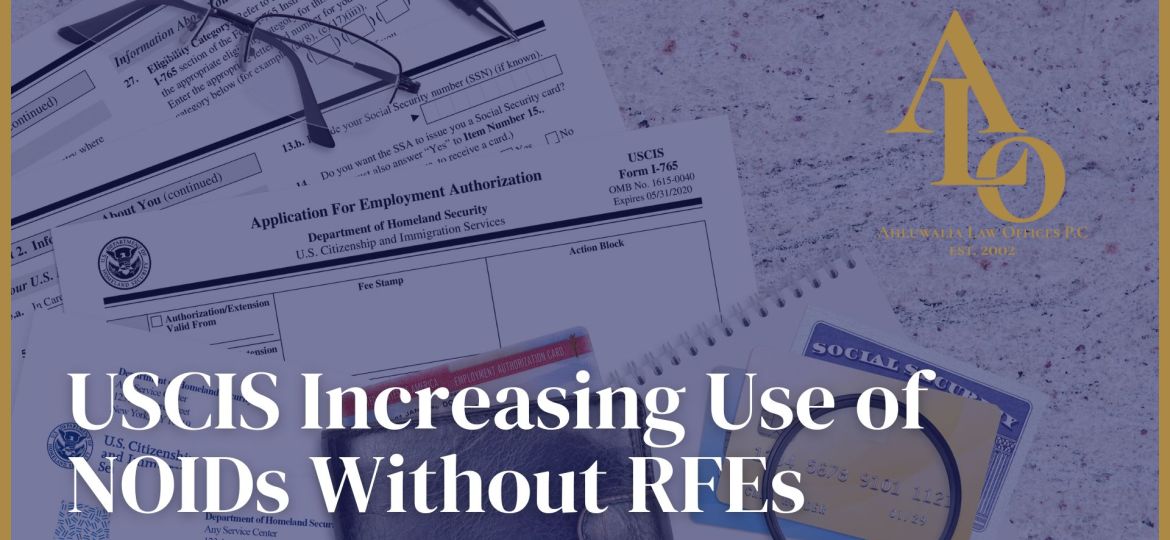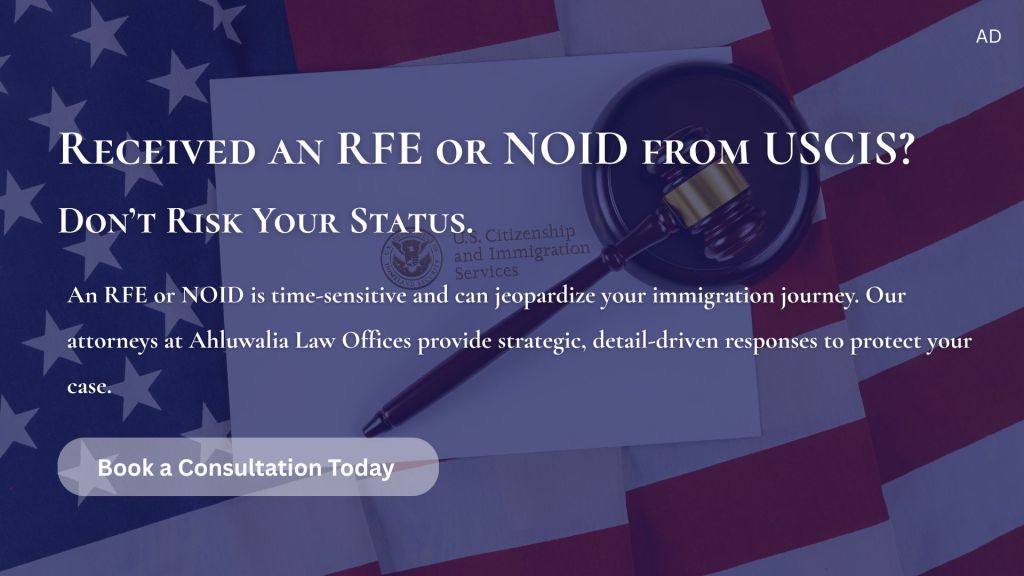
Recent reports indicate that U.S. Citizenship and Immigration Services (USCIS) is issuing more Notices of Intent to Deny (NOIDs) without first providing a Request for Evidence (RFE). This development highlights a shift in adjudication practices and carries significant implications for foreign nationals, visa holders, and employers.
What the USCIS Policy Manual Says
The USCIS Policy Manual confirms that officers have full discretion to issue RFEs or NOIDs. If an officer determines that a filing lacks any legal basis for approval, the petition or application may be denied outright—without issuing an RFE or NOID beforehand (8 CFR 103.2(b)(1)).
In August 2025, USCIS updated its manual for family-based petitions, removing prior language that encouraged officers to first issue an RFE or NOID before denying a case. This revision underscores the agency’s increasing reliance on denials where evidence is deemed insufficient.
Practical Impact for Applicants and Petitioners
- Greater Risk of Immediate Denials: Applicants may not have the opportunity to correct minor issues through an RFE.
- NOID vs. RFE: A NOID, while providing an opportunity to respond, sets a much shorter timeline and raises the stakes for compliance.
- Examples of Issues Cited: USCIS has issued NOIDs for invalid signatures—particularly where a digital copy of the same signature appears across multiple forms.
Recommended Strategies
To reduce risks in light of these trends:
- Eliminate foreseeable issues: Ensure signatures, documentation, and forms meet strict compliance standards.
- Focus on quality control: Use updated forms, accurate fees, and comprehensive filing checklists.
- File early: Building lead time allows for re-filing, appeals, or alternative strategies if a denial occurs.
- Anticipate NTAs: Some applicants report receiving Notices to Appear (NTAs) even during grace periods, which heightens the need for careful planning.
Key Takeaway
The increase in NOIDs without RFEs reflects a stricter adjudication environment. For foreign nationals, families, and businesses, proactive preparation and early legal guidance are essential to safeguarding immigration status and future opportunities in the United States.


